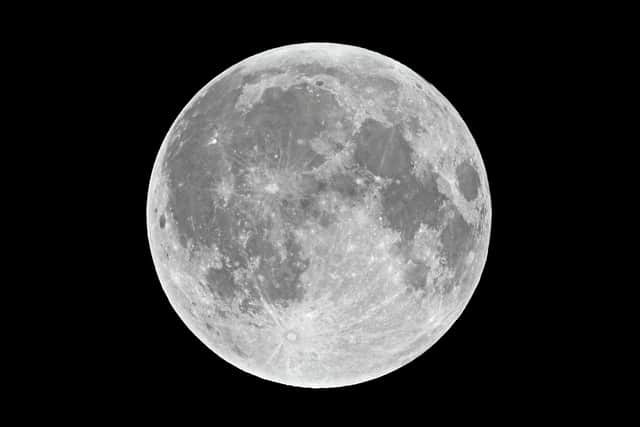When is the next full moon?: This when you can see the full moon in February and the best places to view it
and live on Freeview channel 276
We are set to see another full moon very soon, following the January “Wolf Moon”.
The February full moon, which is also known as the Snow Moon will light up the night sky on Saturday, February 24.
Advertisement
Hide AdAdvertisement
Hide AdHere is everything you need to know about the February full moon including the best places to see it.
Why is February’s full moon named the Snow Moon?
The February full moon is apparently also known as the Snow Moon due to February being historically the snowiest month in the Northern Hemisphere.
What time will we be able to see it?
The February full moon will be visible at the earlier time of 12.30pm.
Where is the best place to see the February full moon?
The best places to see the February full moon will be in a place that has a clearer view of the night sky, taking into account little light pollution.
What other celestial events will we see in 2024?
Advertisement
Hide AdAdvertisement
Hide AdBefore the full moon takes place, we will see a New Moon on Friday, February 9.
A new moon is when the moon is directly between the earth and the sun with its shadowed side facing us. A new moon can be spotted as it crosses the face of the sun during a solar eclipse.
February’s new moon will be visible from 5.59pm.


Here is the full calendar of celestial events taking place for the remainder of 2024.
March
March 10: New moon
March 20: March Equinox
March 24: Mercury at greatest eastern elongation
March 25: Full moon
March 25: Penumbral lunar eclipse
April
April 8: New moon
April 8: Total solar eclipse
April 22-23: Lyrids Meteor Shower
April 23: Full moon
May
May 6-7: Eta Aquarids Meteor Shower
May 8: New moon
May 8: Mercury at greatest western elongation
June
June 6: New moon
June 20: Summer Solstice
June 22: Strawberry moon
July
July 5: New moon
July 21: Buck Moon
July 22: Mercury at greatest eastern elongation
July 28-29: Delta Aquarids Meteor Shower
August
August 4: New moon
August 12-13: Perseid Meteor Shower
August 19: Sturgeon Moon
September
September 3: New moon
September 5: Mercury at greatest western elongation
September 8: Saturn at opposition
September 18: Supermoon
September 18: Partial lunar eclipse
September 20: Neptune at opposition
September 22: September Equinox
October
October 2: New moon
October 7: Draconids Meteor Shower
October 17: Full moon and supermoon
October 21-22: Orionids Meteor Shower
November 1: New moon
November 4-5: Taurids Meteor Shower
December 30: New moon
Comment Guidelines
National World encourages reader discussion on our stories. User feedback, insights and back-and-forth exchanges add a rich layer of context to reporting. Please review our Community Guidelines before commenting.